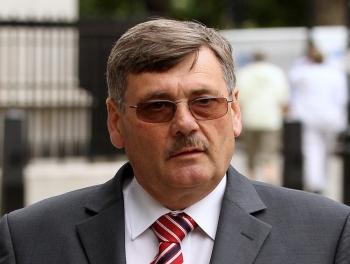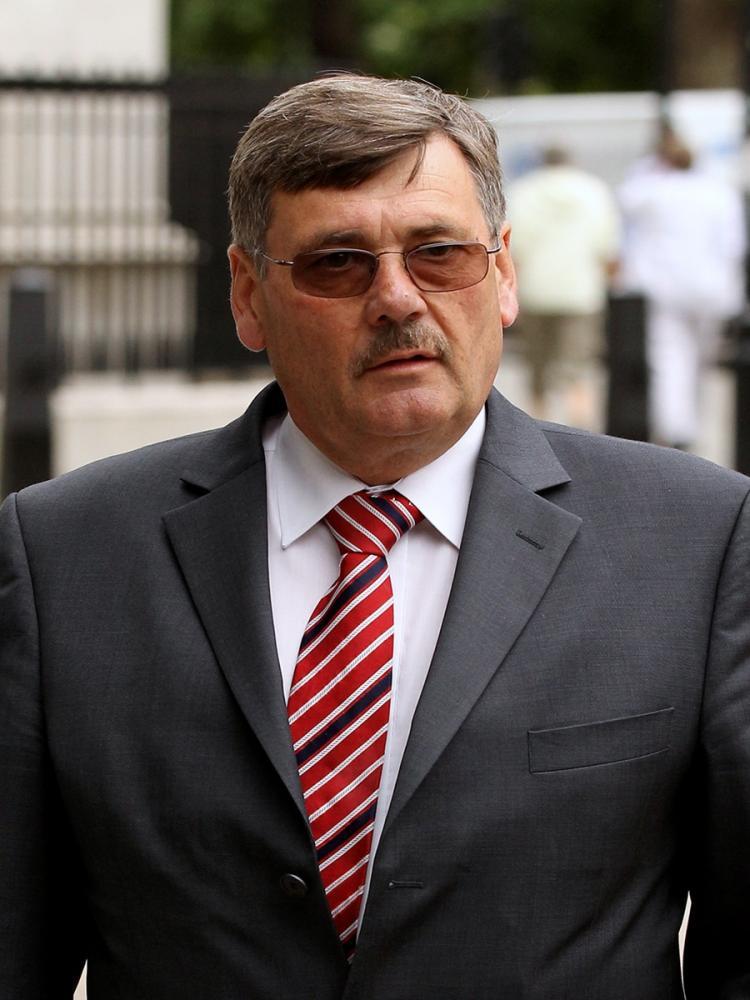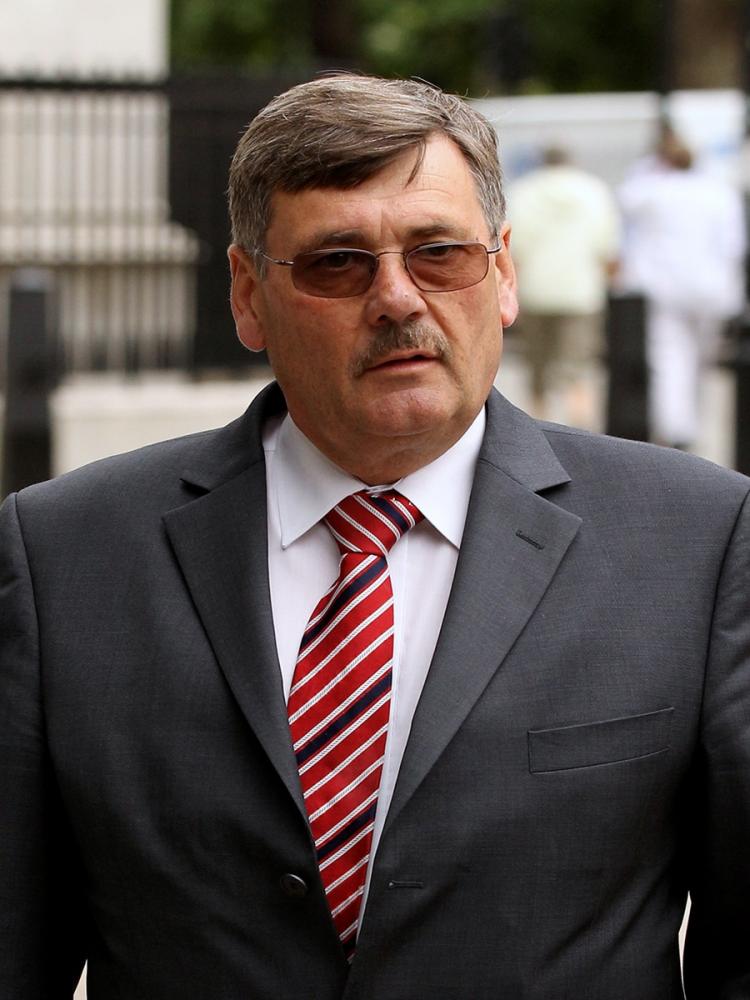LONDON—A former British diplomat to the United Nations told the Iraq Inquiry that assessments of weapons of mass destruction (WMD) were “intentionally and substantially exaggerated” to the public in the runup to the invasion.
Carne Ross was first secretary at the U.K. Mission in New York from late 1997 to June 2002. He spoke at the Chilcot Inquiry in London on July 12, reiterating his view that ultimately the public had been lied to.
In a statement submitted to the Inquiry he said, “This process of exaggeration was gradual, and proceeded by accretion and editing from document to document, in a way that allowed those participating to convince themselves that they were not engaged in blatant dishonesty. But this process led to highly misleading statements about the U.K. assessment of the Iraqi threat that were, in their totality, lies.
“Throughout my posting in New York, it was the U.K. and U.S. assessment that while there were many unanswered questions about Iraq’s WMD stocks and capabilities, we did not believe that these amounted to a substantial threat.
“At no point did we have any firm evidence, from intelligence sources or otherwise, of significant weapons holdings: most of the unanswered questions derived from discrepancies in Iraq’s accounting for its past stocks and the destruction of these stocks.”
He also emphasized that alternative options to invasion were never discussed.
“There was no deliberate discussion of available alternatives to military action in advance of the 2003 invasion,” Ross said.
“There is no record of that discussion, no official has referred to it, no minister has talked about it, and that seems to me to be a very egregious absence in this history—that at some point a government before going to war should stop and ask itself, ‘Are there available alternatives?’”
Ross said that the threat from WMD destruction did not change after 9/11, and neither did the government’s assessment of that threat change, which he says is evidenced in many memorandums.
What changed, however, according to Ross, was the presentation of the evidence, notably in the WMD dossier published in September 2002 and other documents around that time.
“The nuanced judgments contained in the internal JIC [Joint Intelligence Committee] assessments, for instance, were massaged into more robust and frightening statements about Iraq’s WMD capability.”
He says that the potential development and existence of WMD were played up while the crucial issue of the delivery systems for these weapons—and the lack of evidence for them—was played down.
Ross points out that in March 2002, a paper on Iraq’s WMD was sent to Britain’s parliamentary Labor Party, which included the claim that “if Iraq’s weapons programs remain unchecked, Iraq could develop a crude nuclear device in about five years.” Ross says that such a claim would be true of almost any moderately-industrialized country.
In terms of the threat of chemical warfare, Ross also said these threats were overplayed.
“This paper also contains such scare-mongering claims as ‘less than a teaspoon of anthrax can kill over a million people’ without explaining the extremely difficult process for anthrax to be weaponized and delivered in an effective method.”
The Chilcot Inquiry was launched July 30, 2009, to identify lessons learned from the Iraq conflict. The inquiry is expected to deliver its report by the end of this year.
Carne Ross was first secretary at the U.K. Mission in New York from late 1997 to June 2002. He spoke at the Chilcot Inquiry in London on July 12, reiterating his view that ultimately the public had been lied to.
In a statement submitted to the Inquiry he said, “This process of exaggeration was gradual, and proceeded by accretion and editing from document to document, in a way that allowed those participating to convince themselves that they were not engaged in blatant dishonesty. But this process led to highly misleading statements about the U.K. assessment of the Iraqi threat that were, in their totality, lies.
“Throughout my posting in New York, it was the U.K. and U.S. assessment that while there were many unanswered questions about Iraq’s WMD stocks and capabilities, we did not believe that these amounted to a substantial threat.
“At no point did we have any firm evidence, from intelligence sources or otherwise, of significant weapons holdings: most of the unanswered questions derived from discrepancies in Iraq’s accounting for its past stocks and the destruction of these stocks.”
No alternative to war discussed
He also emphasized that alternative options to invasion were never discussed.
“There was no deliberate discussion of available alternatives to military action in advance of the 2003 invasion,” Ross said.
“There is no record of that discussion, no official has referred to it, no minister has talked about it, and that seems to me to be a very egregious absence in this history—that at some point a government before going to war should stop and ask itself, ‘Are there available alternatives?’”
Ross said that the threat from WMD destruction did not change after 9/11, and neither did the government’s assessment of that threat change, which he says is evidenced in many memorandums.
What changed, however, according to Ross, was the presentation of the evidence, notably in the WMD dossier published in September 2002 and other documents around that time.
“The nuanced judgments contained in the internal JIC [Joint Intelligence Committee] assessments, for instance, were massaged into more robust and frightening statements about Iraq’s WMD capability.”
He says that the potential development and existence of WMD were played up while the crucial issue of the delivery systems for these weapons—and the lack of evidence for them—was played down.
Ross points out that in March 2002, a paper on Iraq’s WMD was sent to Britain’s parliamentary Labor Party, which included the claim that “if Iraq’s weapons programs remain unchecked, Iraq could develop a crude nuclear device in about five years.” Ross says that such a claim would be true of almost any moderately-industrialized country.
In terms of the threat of chemical warfare, Ross also said these threats were overplayed.
“This paper also contains such scare-mongering claims as ‘less than a teaspoon of anthrax can kill over a million people’ without explaining the extremely difficult process for anthrax to be weaponized and delivered in an effective method.”
The Chilcot Inquiry was launched July 30, 2009, to identify lessons learned from the Iraq conflict. The inquiry is expected to deliver its report by the end of this year.







